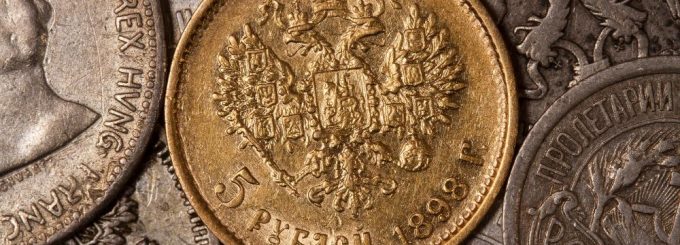Why PCGS, NGC, and PMG Certification Matters in Numismatics

In numismatics, a coin’s grade is just as valuable as its rarity or historical significance. Collectors and investors seek coins that are authenticated and accurately graded. This is where certifications from trusted grading services like PCGS, NGC, and PMG become integral.
These third-party graders provide an impartial evaluation that builds confidence in the coin’s quality. When you understand how these certifications influence the value of a coin, you can make smarter decisions for your collection or investment.
What is Grading in Numismatics?
Grading refers to the process of evaluating a coin’s condition. It includes the assessment of its wear, surface damage, and luster. Professional grading services such as PCGS (Professional Coin Grading Service), NGC (Numismatic Guaranty Corporation), and PMG (Paper Money Guaranty) follow strict criteria to assign coins a grade. The grade impacts both the coin’s aesthetic value and its market price. A well-graded coin can be worth significantly more than an ungraded one or a coin graded lower.
The Role of PCGS, NGC, and PMG in the Market
PCGS, NGC, and PMG hold significant authority in the world of numismatics. Their grading processes are highly respected by collectors, dealers, and investors. Each service has its own standards, but they all aim to provide consistent and unbiased evaluations.
PCGS, for example, is often seen as the leader in the market for U.S. coins. NGC, while also highly respected, has carved out its niche in foreign coins and ancients. PMG, an offshoot of NGC, specializes in the grading of paper currency.
The reputation of these grading companies allows for better pricing transparency. For example, a coin graded by PCGS will likely command a higher price than one that is not graded or is graded by a less-known service. The consistency and trust placed in these companies help buyers feel more secure in their purchases, which in turn drives demand for coins with PCGS, NGC, or PMG certification.
How Certification Affects Value
Certified coins tend to sell for higher prices than ungraded ones. This is because buyers are willing to pay more for a coin that has been professionally evaluated and authenticated. Graded coins eliminate much of the guesswork for collectors. They know that the coin’s grade accurately reflects its condition, and they do not have to worry about overpaying for a poorly graded coin.
Coins graded by PCGS, NGC, and PMG also enjoy higher liquidity in the market. This means that certified coins are easier to buy and sell. As the market for numismatics continues to grow, a certified coin offers an assurance that its value is more likely to hold or increase over time.
The Influence of Grading on Specific Coins
Certain types of coins are more likely to gain from professional certification. For example, coins such as Morgan Silver Dollars often see significant differences in price between those with professional grading and those that are ungraded. The same can be said for historical pieces like early gold or ancient coins. In these cases, certification helps buyers identify coins that are authentic and well-preserved. For rare or valuable coins, grading provides a clear picture of quality and helps guide price expectations.
What Sets Coin Exchange Apart
Coin Exchange acknowledges the importance of professional grading in numismatics. As a trusted dealer in coins, bullion, and jewelry, we offer a selection of certified coins that are both authentic and accurately graded.
If you are looking for rare Morgan Silver Dollars or other historically significant pieces, we make sure that each item in our inventory meets the highest standards. Feel free to visit us in Hartsdale, NY, or explore our online store to see our selection of certified coins.


